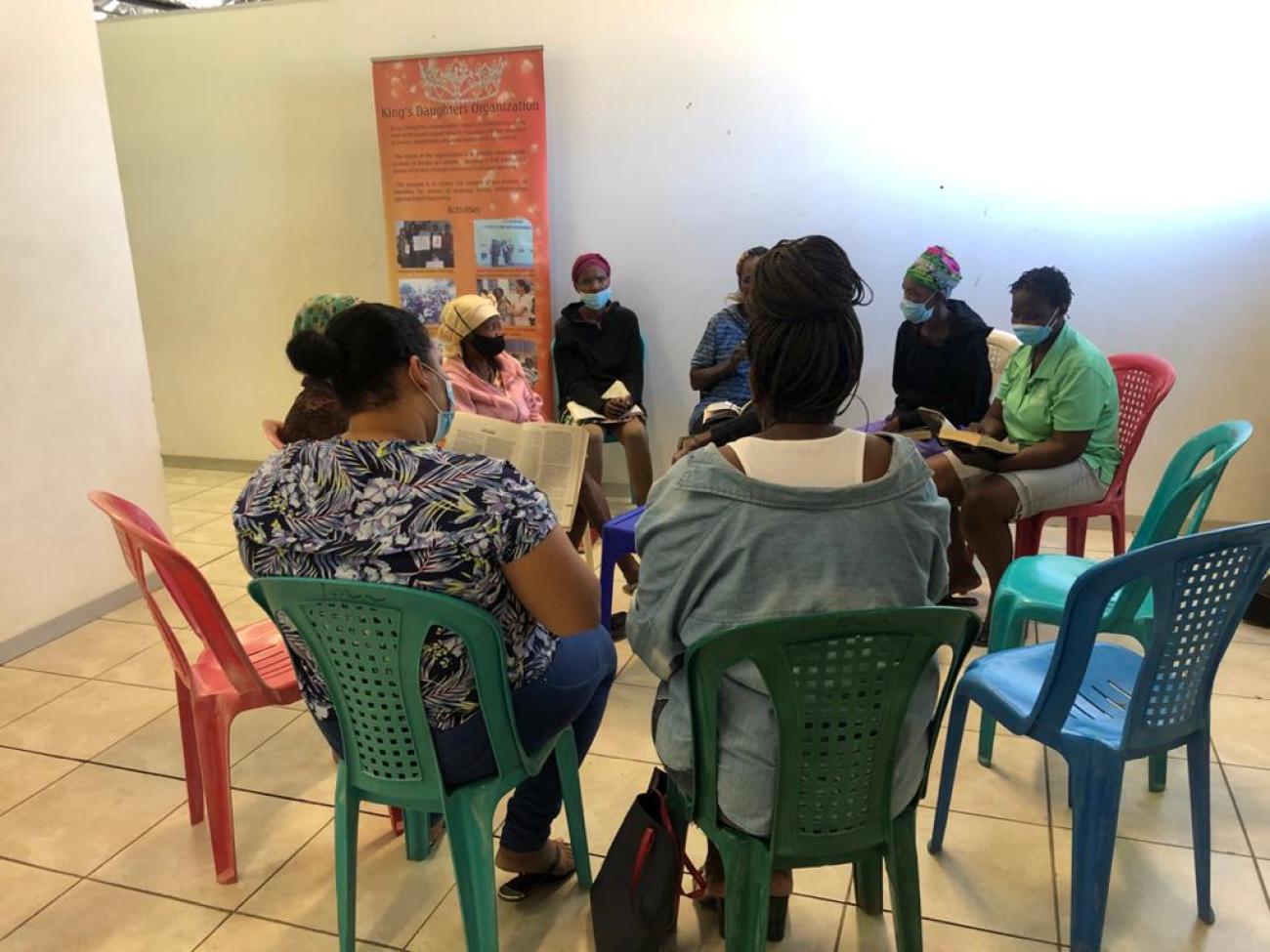The City of Windhoek, is an economic and transport hub faced with various issues and challenges, including high HIV prevalence, poverty, food insecurity and inequalities, and therefore critical in the country’s HIV response. Despite the many efforts from the government and partners to ensure that HIV services reach all people, including members of key populations, realities related to inequalities, stigma, and discrimination often create barriers to individuals to access the available HIV services. Evidence suggests that many individuals who identify as key populations (men who have sex with men, sex workers, transgender people, and people who inject drugs) are vulnerable to HIV transmission and they predominantly reside in urban areas, such as Windhoek. Through the Fast-Track Cities Initiative, UNAIDS Namibia in collaboration with the City of Windhoek, is supporting three civil society organizations, King’s Daughters Organization, Namibian National Association of the Deaf (NNAD) and OutRight Namibia to improve HIV prevention, testing and retention services for key populations within Windhoek. Through this project, these vulnerable populations are being reached to increase better HIV prevention, treatment, and care services.
According to the Integrated Biological Behavioral Surveillance Survey (IBBS) 2019 report, HIV prevalence is estimated at 21.3% among Female Sex Workers (FSW) and 20,9% among Men who have Sex with Men (MSM), with anecdotal evidence highlighting that many key populations fear and experience stigma and discrimination from their communities and health facilities, thus resulting in their avoidance to seek health services.
During programme implementation from September 2020 to April 2021, more than 930 individuals within the key population groups and more than 209 sex workers in Windhoek were reached with interpersonal communication sessions and HIV testing services, complimented by same day initiation for Pre-Exposure Prophylaxis (PrEP) and Antiretroviral therapy (ART) for those who are eligible. Through NNAD, 60 people with hearing impaired disabilities were trained on human rights by strengthening the intersectionality of Human Rights, Health and service provision with a direct focus of sexual orientation, gender identity, gender expression and key populations issues and challenges.
Some of the lessons from this work include effective results, whereby some sex workers living with HIV are reaching their Viral Load Suppression through the engagement of Adherence Support Groups to enhance adherence to treatment. Evidence suggests that 76.5% of female sex workers who are on treatment are viral load suppressed, compared to 91% in the general population in Windhoek. Achieving viral suppression protects the body’s immune system, helps people living with HIV stay healthy and prevents transmission of HIV to other people. Peer-to-peer driven interventions ere highly encouraged by implementing partners as key populations tend to trust each other leading to enhanced motivation to access health and HIV services. Providing health education and access to clinical services at the same settings also ensures that those who need services are able to access them, and maintained on the programmes and on treatment; with diversity friendly and competent
service providers continuing to encourage key populations to seek and access health services.
In addition, the lived experiences of people with hearing impaired disabilities of being stigmatized and discriminated in public, with limited access to information and education materials have been highlighted, as many are not translated into sign language. Lack of sign language interpreters at health facilities is also as a critical barrier to accessing health services by this community, resulting in misdiagnosis due to communication barriers.
In conclusion, interventions for these vulnerable and usually left behind populations are being supported to ensure that no one is left behind and to contribute to the country’s efforts to attain its targets for the national HIV response. UNAIDS Namibia will continue to work with the City of Windhoek, line ministries and partner organizations to mitigate and address the identified gaps and mitigate the impact of HIV in Namibia. These initiatives will contribute to Namibia’s efforts to end AIDS as a public health threat by 2030, while ensuring that all programmes and interventions are people-centered and gender transformative.




